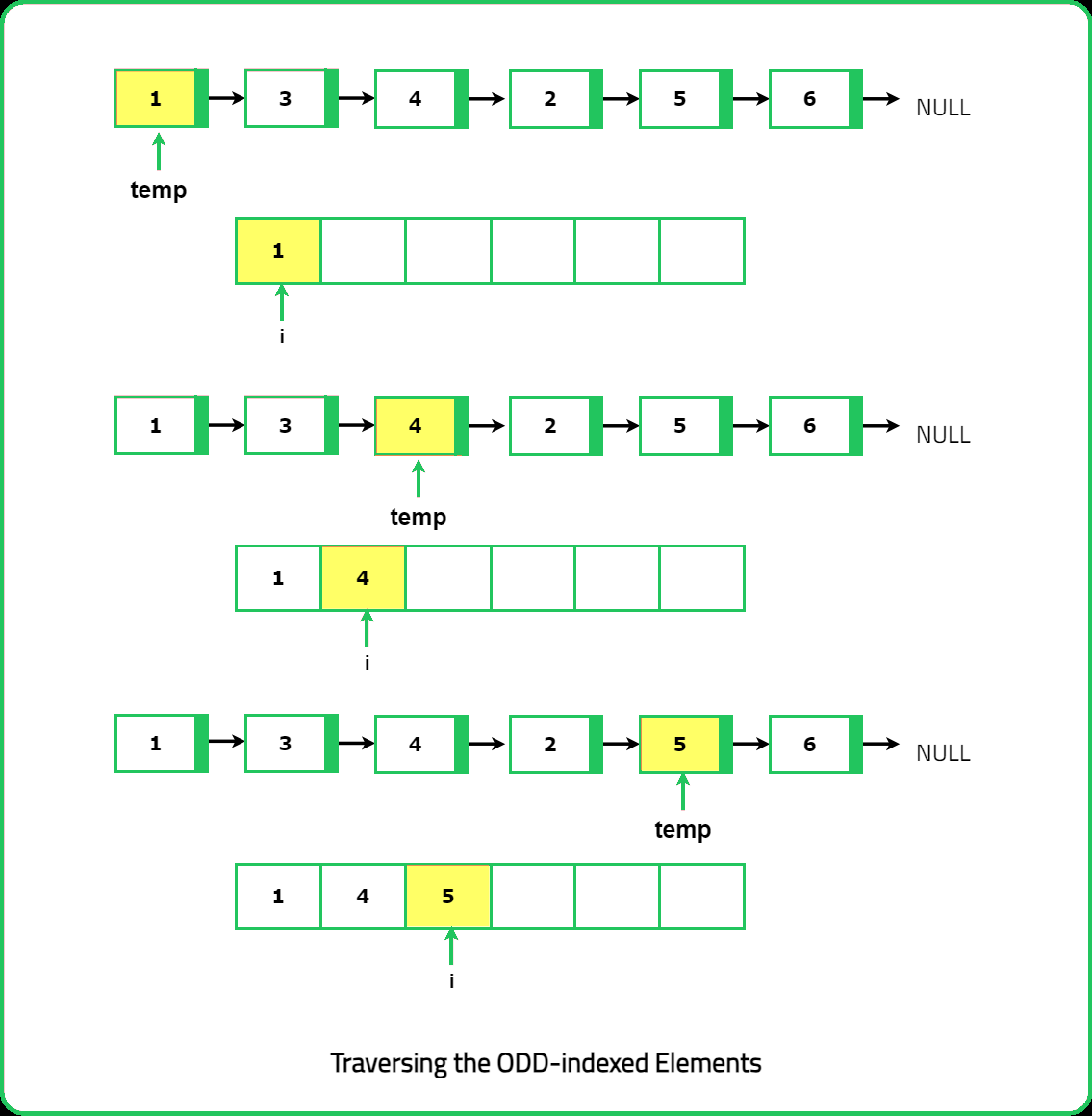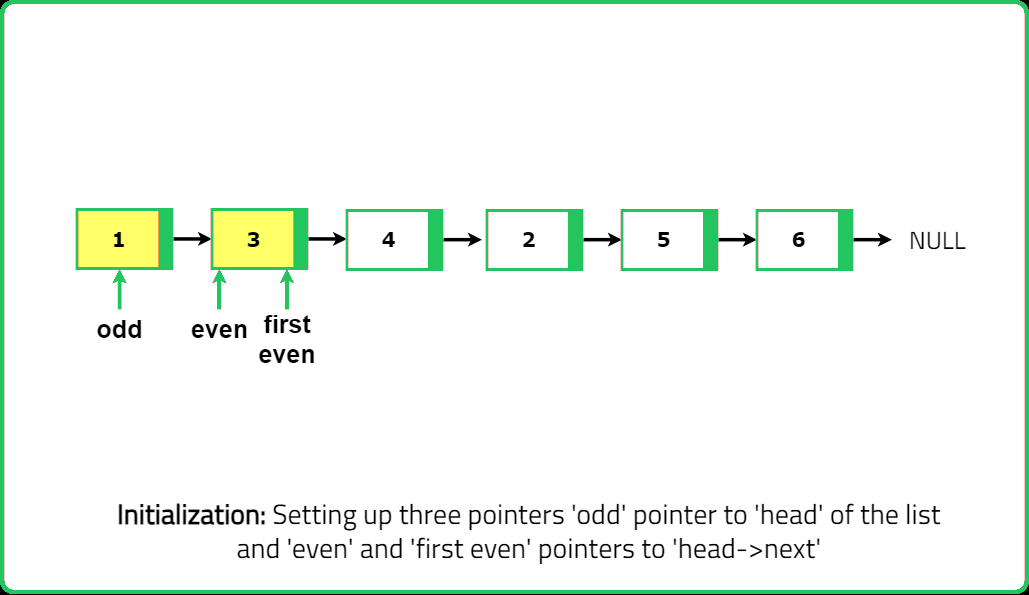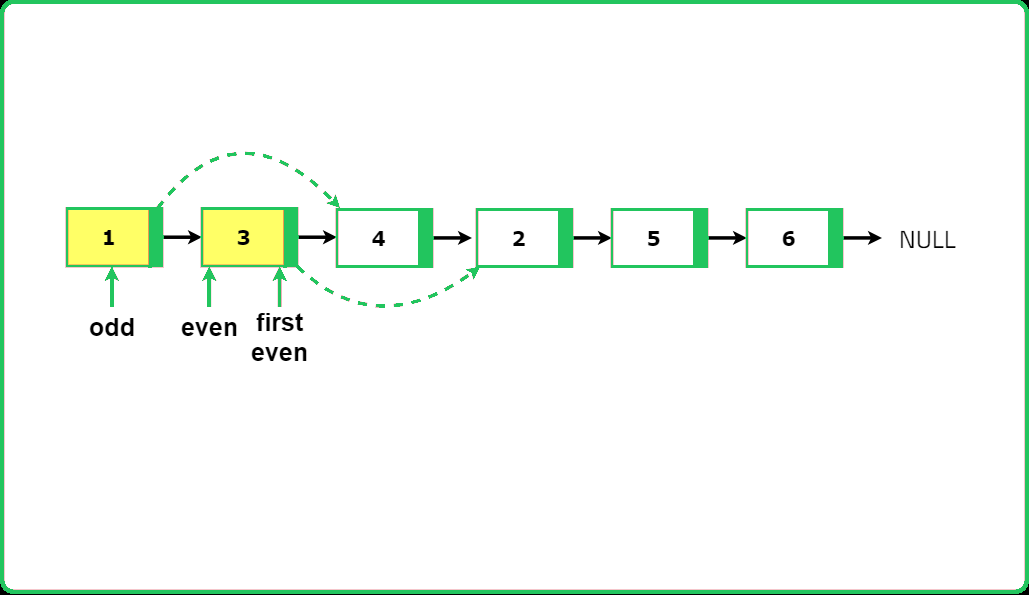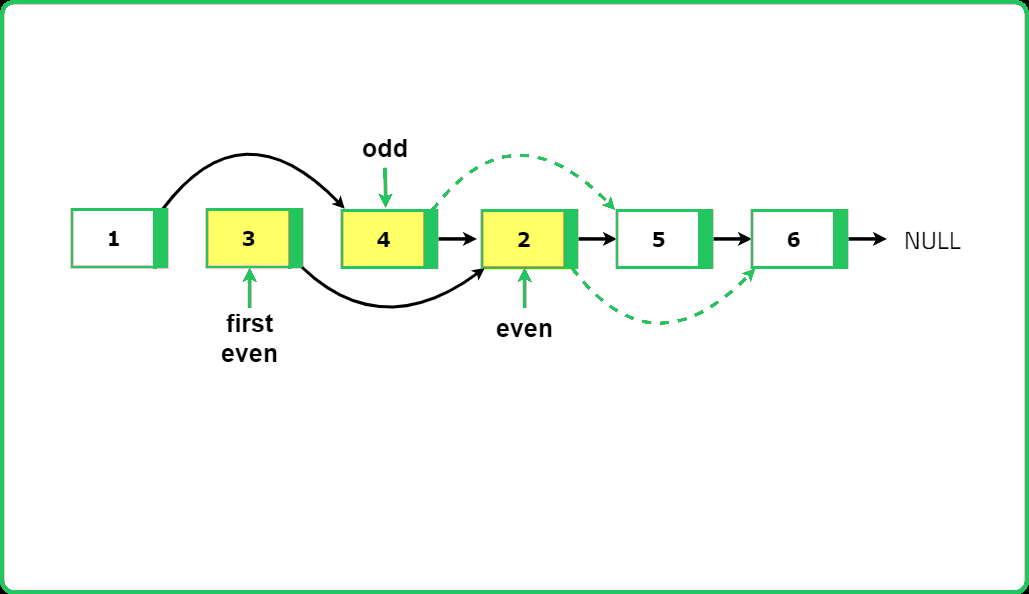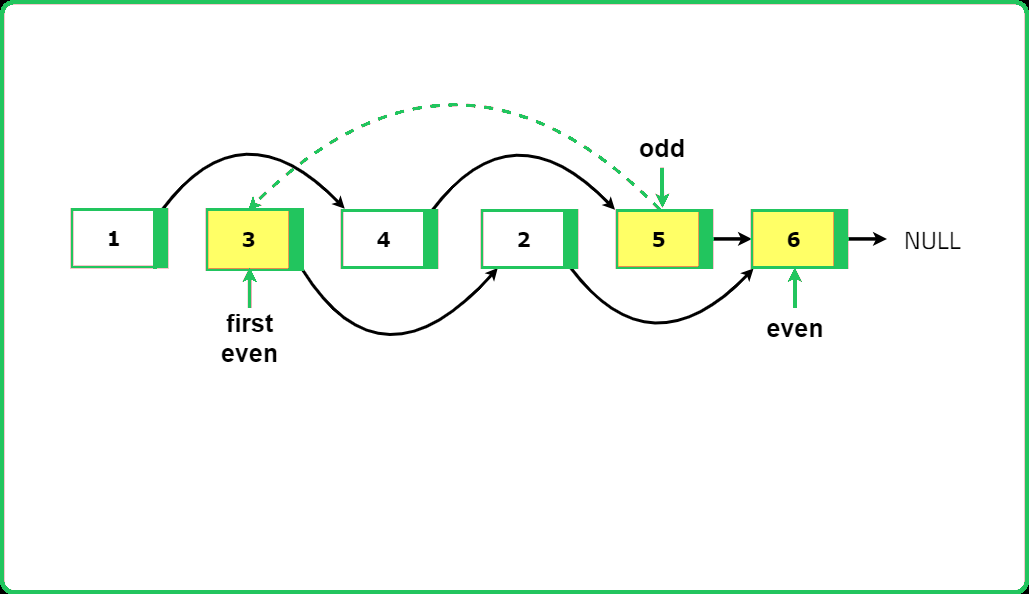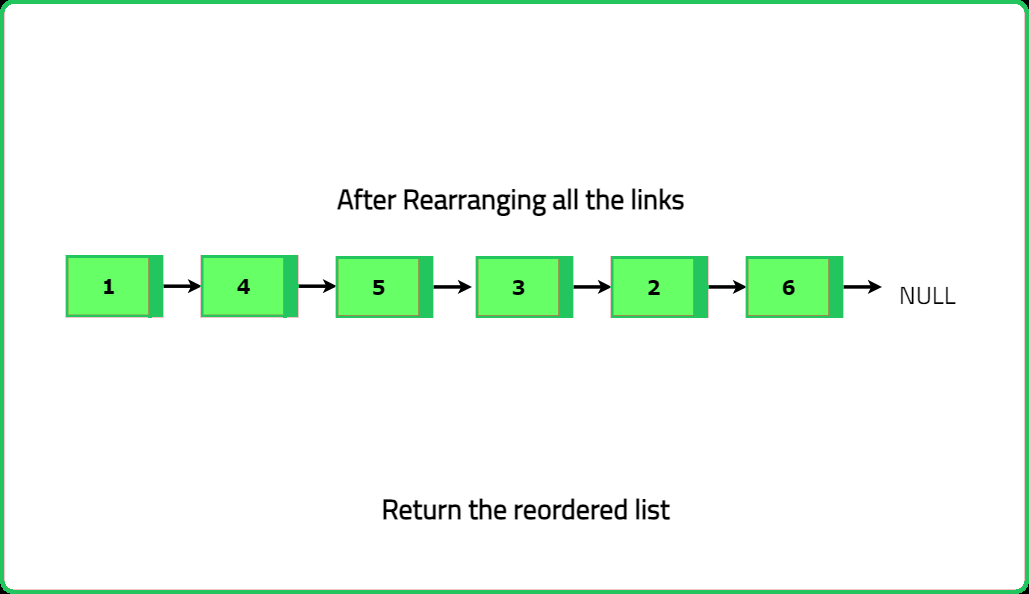Segregate odd and even nodes in LL
Linked-List
Logic Building
Medium
- This programming problem statement exemplifies the concept of list reordering, which is essential in many real-world applications
- For instance, music streaming apps like Spotify or Pandora use similar algorithms to organize queues or playlists
- If you ever wanted to change the order of your playlist, where odd numbered songs are grouped at the start followed by the even numbered ones, while keeping the order of the songs in each group the same, a method like this would come in handy
- Additionally, such reordering tasks are also common in sorting and optimizing search results in a multitude of software applications
Given the head of a singly linked list. Group all the nodes with odd indices followed by all the nodes with even indices and return the reordered list.
Consider the 1st node to have index 1 and so on. The relative order of the elements inside the odd and even group must remain the same as the given input.
Examples:
Input: head -> 1 -> 2 -> 3 -> 4 -> 5
Output: head -> 1 -> 3 -> 5 -> 2 -> 4
Explanation: The nodes with odd indices are 1, 3, 5 and the ones with even indices are 2, 4.
Input: head -> 4 -> 3 -> 2 -> 1
Output: head -> 4 -> 2 -> 3 -> 1
Explanation: The nodes with odd indices are 4, 2 and the ones with even indices are 3, 1.
Input: head -> 1
Constraints
- 0 <= number of nodes in the Linked List <= 105
- 0 <= ListNode.val <= 104
Hints
- A brute-force approach would require scanning the list, separating odd/even indices into two lists, and merging them back. However, this results in O(n) space, which is inefficient.
- Maintain Two Pointers, odd_head for odd-indexed nodes. even_head for even-indexed nodes. odd pointer moves by odd.next = even.next. even pointer moves by even.next = odd.next. Merge Both Groups, Once traversal ends, link the last odd node to even_head.
Company Tags
Swiggy
Western Digital
Lyft
HashiCorp
Byju's
Ernst & Young
Zynga
PayPal
Medtronic
Philips Healthcare
Optum
JPMorgan Chase
Oracle
Reddit
NVIDIA
OYO Rooms
Teladoc Health
Epic Games
Square
Cloudflare
DoorDash
Morgan Stanley
Roblox
ARM
Rockstar Games
Google
Microsoft
Amazon
Meta
Apple
Netflix
Adobe
